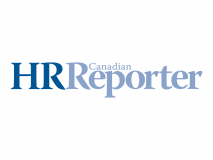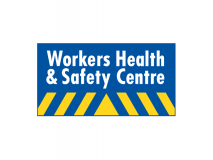Listed below are selected articles published by organizations external to the Institute for Work & Health (IWH) that mention the Institute’s work. This includes articles that report on IWH research and/or quote Institute researchers, as well as articles written by IWH researchers or staff. The organizations include general media, specialty media in the field of work injury and disability prevention, and prevention system partners. The list runs from the most recent to the oldest media mention. It is not exhaustive.

The future of work will hit vulnerable people the hardest
A great deal of attention is being paid to the future of work and its impact on Canadians. Often missing from the discussion is the extent to which different workers will be included or excluded from the changing labour market. As the pace of change quickens in the years ahead, the sustainable employment of vulnerable groups could be in greater jeopardy and inequity could widen, writes Dr. Arif Jetha.
Media outlet
The Conversation
Date published

What’s causing the bottleneck in disability management?
When it comes to disability management and return to work, communication is crucial. But often there are bottlenecks, and a new study by the Institute for Work & Health cites case managers and frontline supervisors as big factors, finds Sarah Dobson
Media outlet
Canadian HR Reporter
Date published

Workplace violence solutions for schools central to recent ETFO symposium
Participants from across Canada came together to discuss the most urgent health and safety concern facing education workers today—growing violence and harassment in schools. At the symposium, IWH Scientific Co-Director & Senior Scientist Dr. Peter Smith spoke of data showing the rise in workplace violence in Ontario is mainly experienced by women in the education sector.
Media outlet
Workers Health & Safety Centre
Date published

IWH takes deep dive into the marijuana Pandora’s box
A team at the Toronto-based Institute of Work and Health (IWH) is doing a deep dive into the issue, though, that might yield valuable data for the industry. Findings from the work will help identify gaps in knowledge, problematic perceptions and risky use patterns, Grant Cameron reports.
Media outlet
Daily Commercial News
Date published

Protecting minds a priority in changing times
In a world where the only constant is change, mental health has become the fastest-growing category of disability in the workplace, Marcel Van der Wier writes. And yet, society is still taking an overly individualistic approach to mental health, emphasizing employee resilience instead of focusing on structural problems in the way work is organized, says Institute for Work & Health's Dr. Peter Smith.
Media outlet
OHS Canada
Date published

As teachers report more violent incidents in schools, boards struggle
In school boards across Canada, more educators say they’re being hurt on the job, according to data reviewed by The Globe and Mail. But there are gaps in data collection, and debates over the reasons for the rise in reports of violence, writes Carolyn Alphonso, citing IWH Senior Scientist Dr. Peter Smith.
Media outlet
The Globe and Mail
Date published

Chronic diseases not slowing down older workers
Personal health may be a factor for older workers in deciding when to retire, but it’s not as big a factor as previously thought, according to a new Institute for Work & Health study. Despite experiencing more pain and fatigue, older workers with arthritis, diabetes or both were no different from their healthy peers in their retirement plans, writes John Dujay.
Media outlet
Canadian HR Reporter
Date published

New beginnings: Recent immigrants need more support to reduce their heightened risk of injury
A recent study spanning across the United Kingdom, Australia and Canada found newcomers are at a higher risk of work-related injury and illness. Canadian Occupational Safety editor Amanda Silliker speaks to health and safety professionals and researchers in Canada, including IWH's Dr. Basak Yanar, about ways to reduce risks among recent immigrants.
Media outlet
Canadian Occupational Safety
Date published

Employers miss out on talent by overlooking workers living with disabilities
One reason for the lower employment participation rates of people with disabilities is that employers often have prohibitive concerns and pessimistic ideas about hiring people with disabilities. But research conducted as part of the Canadian Disability Participation Project, by a team that includes IWH's Dr. Arif Jetha, suggests that many of the most common employer concerns about hiring people with disabilities are unfounded, writes project lead Dr. Silvia Bonnacio.
Media outlet
The Conversation
Date published

Guest column: T.O. council's decision on construction tendering makes sense
On June 19th , Toronto City Council voted overwhelmingly to maintain its contractual relationship with the province’s major construction union. It's a longstanding relationship that militates towards high quality work, safer job sites and a robust training sector, writes guest columnist Phil Gillies, who points to IWH research on the union safety effect to support one of his arguments.
Media outlet
Toronto Sun
Date published